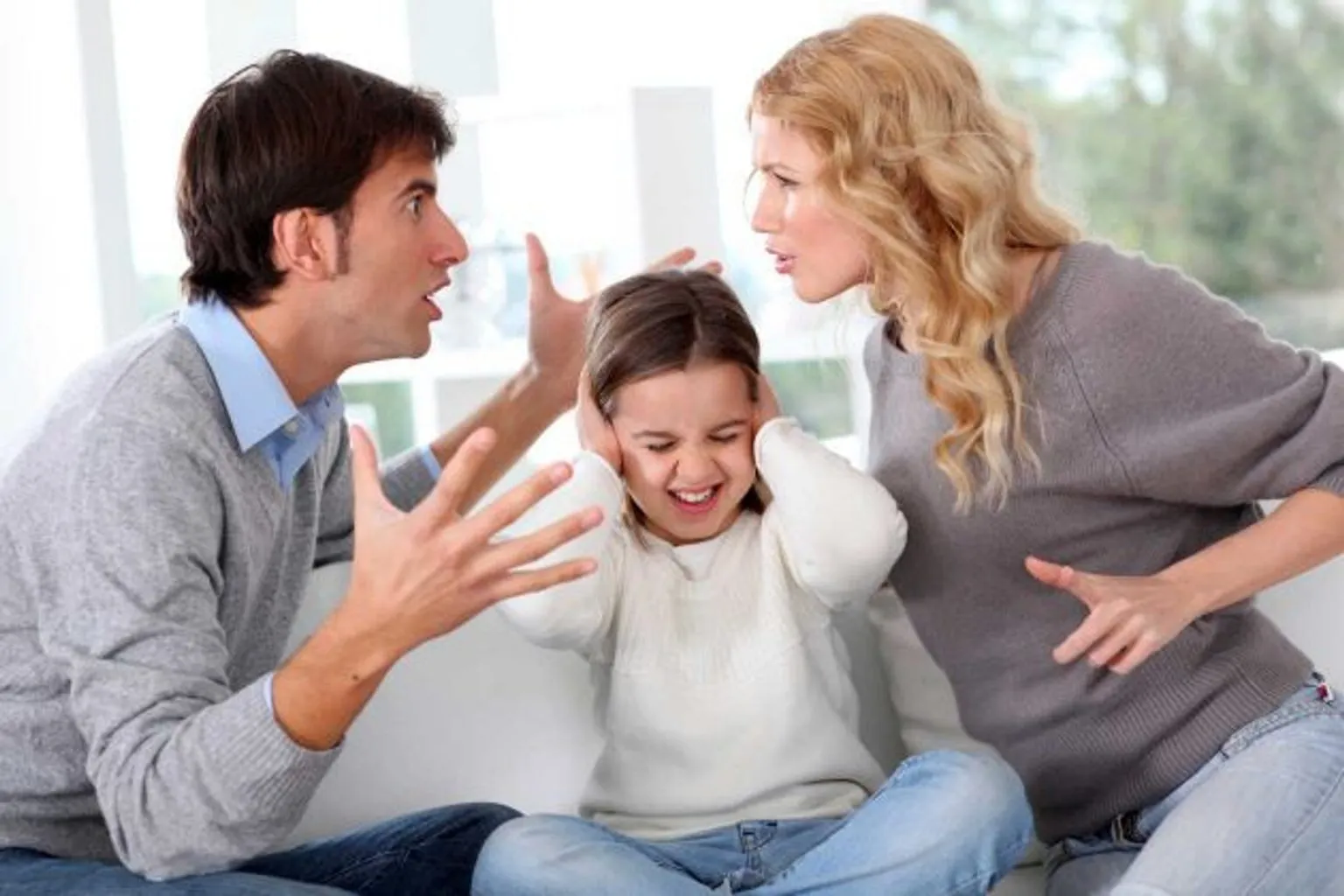What is family bullying? Causes and consequences
Bullying is a type of physical or psychological humiliation carried out by one or several people and it is possible that this type of behavior has its origin at home, because bullying is occurring in the family, and it has not been evidenced at home due to failures Communication.
Bullying in the family
There is little information to determine its frequency and impact, but family bullying that usually occurs between siblings is an intimidation that occurs at home, difficult to identify on sight, that it is customary to see some rivalry between siblings and that is where you have to learn to differentiate when excessive sibling interaction is occurring.
One of the few works known about family bullying due to bullying between siblings was carried out by Mark Kiselica, professor of psychology at the University of Cabrini, in Pennsylvania, United States, reaching the conclusion “that in Western society the sibling bullying is the most common form of humiliation, even than child and domestic abuse.
According to Professor Kiselica’s study, he was able to observe that between a third and a half of young people under the age of 18 suffer some form of abuse between siblings and that these events occur more frequently than bullying in schools. This conclusion may not be fully accepted, due to the rivalry often seen between siblings, different personalities, competitiveness, getting attention from their parents, and other sibling issues.
In other words, the causes of bullying are related to people and to the conditions of the family environment from which the harassers and harassed arise. These are part of a family environment, which deeply impacts and shapes the smallest members. Different family problems can generate aggressive behavior in children and the development of survival mechanisms in a hostile environment.
Possible causes of family bullying
This hostile environment created by the dysfunctionality of the marriage that generates disagreements between the parents and also the children that they usually express through shouting, threats, physical aggression and coercion. These and other effects are caused by a lack of communication and respect on the part of both members of the marriage couple or one of them. Situation that could be resolved in the courtship stage, being more honest with each other.
A failure of commitment and communication drags like a failed subject from one school year to another, which impacts married life. In some cases, couples in the short or medium term go in search of psychological or psychiatric help for the different situations that an unstable marriage goes through because, if they continue without control, they worsen causing in the end: going to jail or the separation and by addition, the psychological damage of the children.
Before contracting let’s avoid getting carried away by an impulsive and unintelligent love. In the case of young people who, because the bride becomes pregnant, the parents force the couple to marry, without the young people being prepared and even ignorant of the responsibility that this act entails as a couple and with the child or children to come. .
When a couple decides to get married, they need to reflect that both parents are responsible for giving their children a proper life and giving them the place of importance they occupy within the family. So that when they grow up they know how to have a positive attitude in their marriage, making mature and responsible decisions with their new family. This is because every failed marriage is the consequence of a failure in family formation.
A lack of good family education at home in childhood and adolescence of girls and boys is the origin of future marital disagreements, with consequent separations and divorces. Not for lack of love but of understanding and communication. If they decide to visit a specialist, he or she will have to solve what the parents of the married couple did not know how to do at the time, whether due to ignorance or lack of interest, leaving their children emotionally unprotected.
The lack of good emotional intelligence of parents for their children causes that when children reach adolescence and begin a dating relationship, uninformed friendships are the counselors and those who encourage them to seek love and in turn sex. with protection. That if they get pregnant, they start a new cycle of possible marital failures.
Separations, intra-family abuse, abandonment, lack of responsibility, among others, cause intra- family bullying, drug use, alcoholism, gang membership, insecurities, vagrancy and other situations that harass youth today. Consequences, which if analyzed are a request for help from parents to get closer to their children and not abandon them to deal only with their own problems.
The Chilean psychologist Pilar Sordo, points out that they have been observing how parents, because they do not have time for their children, are leading them out of ignorance so that the screen God (Computers-Television and Mobile Phones) is the one who entertains them, with the danger that the parent-child relationship is depersonalized and, consequently, human relationships outside the home and these children and adolescents behave violently.
They are families that all live together in one house, sharing very little between them. There is very little communication, although they talk nobody knows what worries the other, each one worries about himself. It is pending to receive more than to give, it is a group of people who live under the same roof, where there is a lot of individualism.
I take a beautiful reflection from Pope Francis, to think about these words,… “You don’t need to go to a psychologist to realize that when another is mistreated, it is because the one who mistreats is an immature person who has not grown up, and needs to humiliate another to feel worthwhile”… adding that if the relationship goes down the path of discord, we will all end up badly: the abuser and the abused.
Domestic bullying how to detect it
Within the family, the abused and the abuser are victims of the family situation and unload their problems through this unhealthy relationship, in which both recreate and vent in their own way. Both are characters that require help and recover them to transform them into positive people, for their lives and society.
Those who do bullying, seek to vent to attract attention, manifest and vent the abuse that they experience at home, these children, adolescents or young people behave in this way, becoming aggressive, not very sociable, not at all affective. They are all warning signs and ways to show what is happening at home, such as the absence of some or both of their parents; a divorce resents; power struggle between single parents. It can also be a rebellious response due to abuse of parental power or total indifference for their parents.
Linked to this situation is the culture and social influence of consumerism as: Search for power, money and pleasure as a life goal. The adults of the family have to pay attention in reference to the integral formation that they give to the children of the family and, the threats, shouts, blows, are not the way and even less the best formation, it should be noted that it is possible that the parents themselves have that attitude, to vent their personal traumas and frustrations as a couple.
sibling rivalry
The way the confrontation between young children works can be said to be simple. The parents quickly identify what could have caused it (the dispute over a toy, jealousy of the parents, having broken a toy, because I took away the position). Likewise, it identifies how the conflict occurred and who started it (it can be the older brother, the younger brother or both). This way it is easy to intervene to resolve the conflict and talk to them to resolve it.
However, it does not compare the unmistakable rivalry between brothers, with the bullying corner between the brothers. In the first, the rivalry is observed between the two. Unlike when there is constant mistreatment of one of them over the other, because they feel that they have more power than the other. Situation that occurs in the family and they see it as something normal and categorize it as part of the typical fight between brothers. According to the psychologist Sierra, you have to be aware if she observes:
Observing grievances and psychological intimidation towards a sibling
A child’s self-esteem can be violated for life due to continuous insults, since these can cause more damage than physical blows. This happens when, in addition to insulting him when they are alone, he does it in the presence of others, seeking to annul the attacked brother, making him look ridiculous, in front of friends and family. Physical violence or ganging of more than one sibling also occurs, bullying one of them. Getting to feel alone.
They no longer feel safe at home
Bullying between siblings occurs in any social class and usually in a family of three or more children, not being conditioned to whether it is a home with both parents or a single parent, as observed in research conducted by Professor Dieter Wolker. That same investigation concluded that it is usually the older brother or brothers who frequently abuse or bully the younger ones.
Professor Wolker points out that the practice of bullying is a primitive manifestation of human beings and that it is expressed independently of social advances. Another work reports that when the child suffers from bullying at home, between siblings, the effect on the victim is greater than school bullying.
Because when the child arrives home, he expects to take refuge in a safe place where he receives affection, and if instead he finds himself in an environment full of violence and mortification that make him not feel comfortable and safe in his own home, which can generate possible depressive states and episodes of anxiety in adulthood.
The problem belongs to all members of the family.
First of all, to solve this situation, parents have to find out the reason for the behavior of the aggressor brother. Even on occasions, he reproduces what he was made to do. Well, something like this may have happened. In the event that it is an attitude that the child took out of jealousy for his younger brother, the abusive brother must be put in the role of the abused one, and review the emotions that he experiences in this situation.
With the child who suffers abuse, you have to start working on their self-esteem and what feelings appear when they are being attacked. In addition to those involved, the entire family would have to visit a specialist to analyze whether it is a case of family bullying, if so, the entire family would have to be analyzed, starting with the parents.
Parents have to exercise their role of authority in the home
It is vital that parents assume their role of authority in the home and, above all, that they exercise it adequately and constantly. Avoid having fluctuations in the way of imparting discipline, from one day to the next going from a strict education style to a very permissive one. According to psychologists, this leads to misbehaviors of family members and affects the weakest.
Tips to avoid family bullying
To avoid this situation of family violence, in addition to the responsibility of dealing with situations such as: absence of one of the parents, abuse between family members, situation of badly managed couples, economic problems, which lead to violent behavior in the kids. You have to know how to exercise the role of father, instilling discipline, obedience, respect, rules of coexistence and fraternity. Above all, be role models for your children.
- If you want children to learn to defend themselves outside the home, they must be taught self-respect at home, so that they will be able to command respect outside the home. Here are some tips to avoid bullying in the family and especially between siblings.
- If you want your children to have good emotional stability, as a parent you have to be aware of your own emotional stability.
- Talk to your children, learn to know their tastes, aspirations and dreams; this way they will have the confidence to talk to you about their fears and regrets.
- Be a good listener in conversations with your child, listen carefully to their affinities and emotions. Don’t downplay your children’s feelings or thoughts.
- Make the family environment warm, respectful, independent and interdependent, trustful and loving.
- Avoid reaching extremes of overprotection or laziness.
- Be a person who practices self-control, empathy, assertiveness and emotional intelligence.
Parents have to be the best friends among themselves as a couple and family administrators and thus extend it to their children, without forgetting the responsibility of establishing rules of discipline, respect and affection among each one of those who live in the home and, achieving May this be a refuge where everyone wants to be and care.

Hello! Let me enthusiastically introduce myself as a dedicated blogger fueled by an intense passion for meticulously crafting insightful and well-researched blogs. My mission revolves around providing you, dear readers, with a veritable treasure trove of invaluable information.







